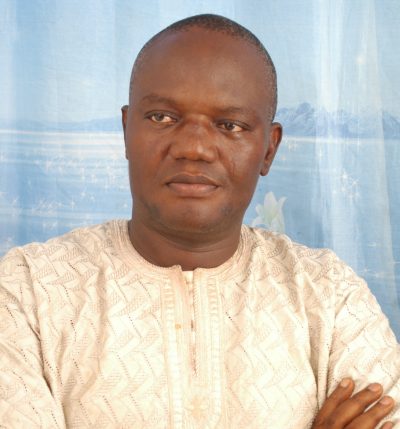Nigeria is at a crossroads and Nigerians are trying to find the responses to an economic crisis and currency turmoil. Of course, all manner of symptoms keep appearing!
Towards the end of February, Governor Biodun Oyebanji unveiled a N12 billion economic relief programme for Ekiti residents. That’s in addition to other proactive steps already taken by the governor to mitigate the effects of the fuel subsidy removal and naira floatation by the national government. In Borno State, Governor Babagana Zulum has been putting in a stellar shift even as Governor Babajide Sanwo-Olu of Lagos State has also been doing well across the board. Although not a paradise on earth, the ‘Centre of Excellence’ has a robust revenue base and a very solid social safety net thereby making it violence-free and practically the safest state in Nigeria. And in Abia State, the recent inauguration of the $800m Geometric Power Plant and the proposed state-wide light rail project have revealed what to expect from the Alex Otti-led government.
With these and other interventions in place, one can safely say that the governors are in the right mode. However, the historical imperative of this time is that men of high intellect and exposure like Oyebanji, Sanwo-Olu, Zulum and Otti should now be at the forefront of redefining the way out of the cultural dysfunction in which Nigeria is currently immersed. That the governors have the human empathy and the intellect to do so is not in doubt. So, why can’t they dig deeper into a critical response to the illusion called ‘palliative’ like the former Governor Lateef Jakande whose direct labour approach to public works projects in Lagos State helped a lot of people to break out of poverty in addition to transfer of skills by participation?
Since social capital is deeper than economic capital, another way of building an aspirational society is by embarking on housing schemes that are directed at civil servants and the urban-middle-class. After all, the Indians and the Vietnamese have shown that the higher the skills of an economy, the higher the productivity. Otherwise, how did Vietnam arrive at having the lowest unit cost of electricity in the world? Well, it is not just that she developed a first-class electricity industry, she also developed world-class institutes! That’s why world-class industries like Samsung have found a safe haven in the once war-troubled country. Indeed, that’s why Samsung does more than $65 billion worth of manufacturing exports annually, not from South Korea, its home country, but Vietnam.
Taking advantage of technology from Denmark, let our governors also maximize the opportunities provided by the removal of the power sector from the Exclusive List. Let them explore all the available human and social capital resources within the country and in the Diaspora to look into the alternative renewable sources of energy.
When one takes a critical look at the terrifying statistics, Ekiti State and the Netherlands have exactly the same land mass. However, the Netherlands is the world’s 2nd largest exporter of food and agricultural products. For the Netherlands, the agro-industrial exports fetch her about $140 billion a year. Impliedly, with the advantage of land mass, there are lots of potentials for a state like Ekiti to transform into an agro-industrial power house.
There was a time when Indians were scattered across the globe, scavenging for survival. But her situation changed immediately she decided to reach out to the Diaspora Indians. Now, India is the world’s 5th largest economy. Today, the Indian Institutes of Technology (IITs) can match any Massachusetts Institute of Technology (MIT). Remember also the Wageningen University and Research as the engine room of the Dutch economy, the power of research that has transformed that small country into its current status. But where are Nigeria’s Research Institutes situated? When was the last time the Nigerian government poured money into, say, the University of Ibadan for research works?
Unlike India, the political establishment in Nigeria has defied the thrust of development, as we have accepted it, or as it has been the conventional wisdom since the 1950s. Instead of following the paths of brilliant economists like Karl Gunnar Myrdal and Andre Gunder Frank, the political class in Nigeria has built its economy based on low skills and low wages, thinking that that’s the way to have political control. As fate would have it, the chickens have now come home to roost and it is as if the gods are angry!
Tafawa Balewa, Nigeria’s first Prime Minister, was right! Balewa didn’t see the point of a Federal Ministry of Agriculture. But he reluctantly established it. As a matter of fact, it was the last Ministry to be created in the First Republic; and he didn’t call it ‘Federal Ministry of Agriculture’. Instead, it debuted as the ‘Federal Ministry of Natural Resources and Research’, with Alade Lamuye as its first minister. The idea at the time was to use the Federal Government money and international aid to establish a fantastic research institute and the products of the research would be given to the regional governments for implementation. Sadly, everything has long been distorted. The last time we heard of the National Institute of Social and Economic Research (NISER) was when Professor Dotun Philips held court as its Director-General. The more reason posterity will remember Oyebanji for turning Ekiti State University not just into a degree factory but also a well-funded and research-focused institution of higher education.
Since nothing happens by chance or faith, the question is: what’s to be done? Since one’s actions determine one’s faith, it behooves educated and enlightened minds like Oyebanji, Sanwo-Olu, Zulum and Otti to favour efforts that tend towards moving away from the low-skill, low-wage labour into a high-skilled economy, which is the only way to get productivity at the optimal and internationally competitive exports. Conventionally, ‘palliative’ is just an expedient start, not a cure. It is a temporary approach, not a permanent solution.
Nigeria as a country must strive to become an agro-industrial powerhouse, most probably taking after the Dutch model. As I have argued elsewhere, our governors now have an opportunity to link agriculture with technology as most of today’s achievements in the sector are technology-propelled. For instance, the Netherlands uses the model of buying grains from the surrounding areas and processing the same into value-additioned agro-industrial products for export to other countries. So, what stops states like Ekiti, Lagos, Borno and Enugu from understudying and … implementing this model?
Our governors must also encourage the creation of Technology Parks. At a time some Nigerians have become crudely selfish and unrepentantly self-centered, only seeking the easy options, the almost-completed Cargo Airport project in Ekiti is an attestation to the fact that the government’s policy thrust is in the right direction. However, it is important to quicken the pace because time is of the essence. A state like Ekiti has one fundamental competitive advantage, and that’s its human capital resources, both at home and in the Diaspora. Therefore, Oyebanji should explore that intellectual property and turn it into gold; and ditto for the other governors. They should set up government-private sector coordinating bodies to link up their people’s capital in the Diaspora and attract Foreign Direct Investments to their states. They need to prove to their brother governors that it is the height of indolence for a governor to practically relocate abroad, walking the streets of London like a teenager on an excursion, pretending to be searching for investors. Whatever is on the ground here will speak to the shape and the size of investments that can be attracted.
May the Lamb of God, who takes away the sin of the world, grant us peace in Nigeria!




